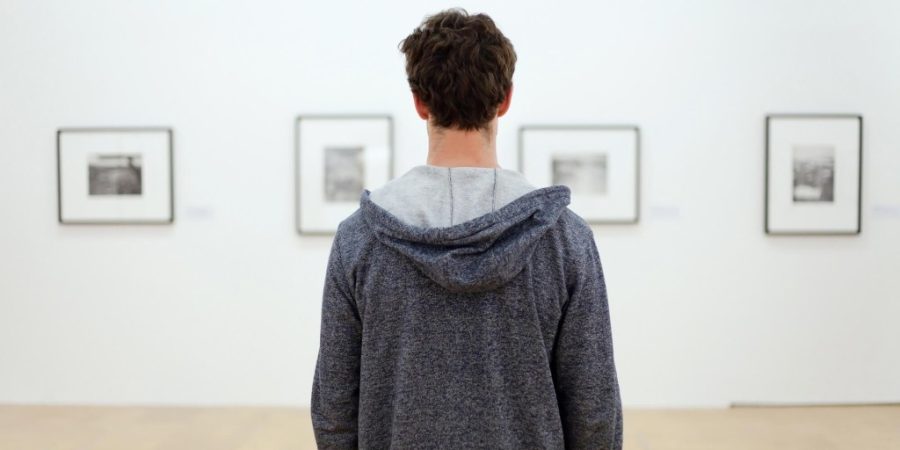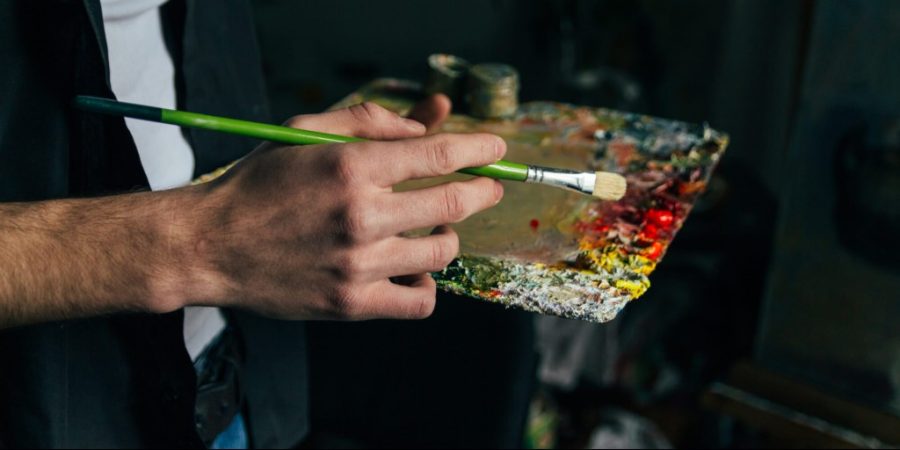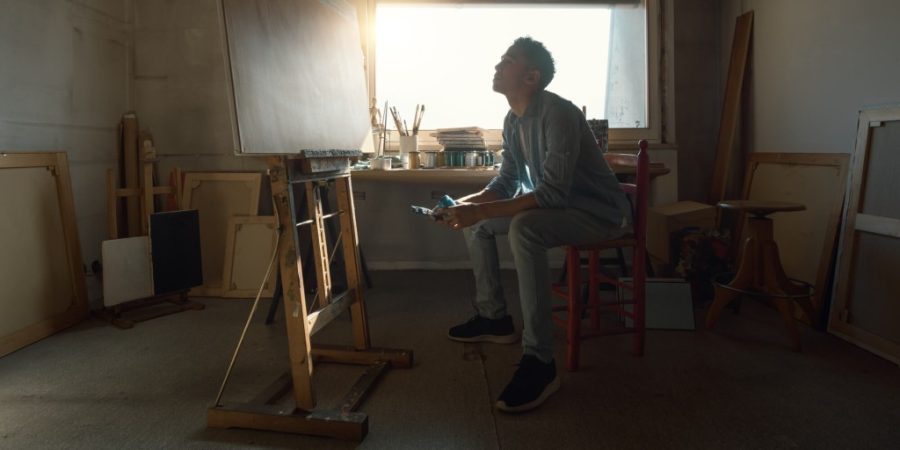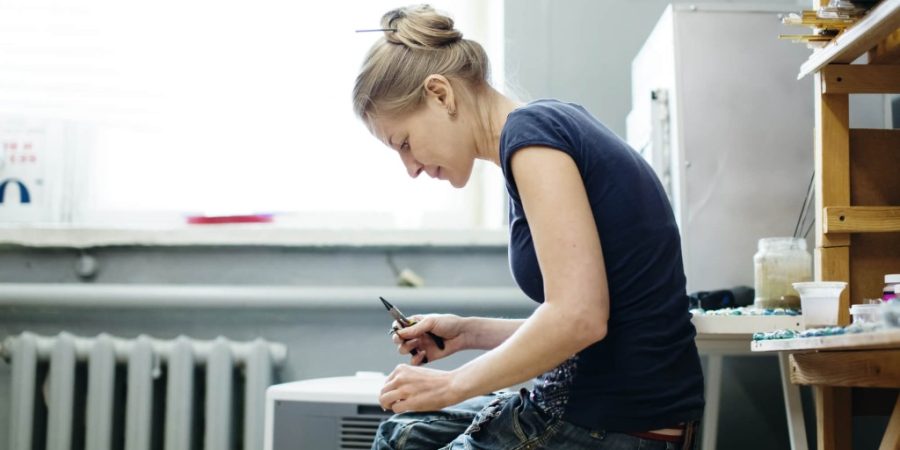
Some things are simply too difficult to put into words. Speaking about experiences may be challenging, if not outright unpleasant, for many Veterans with post-traumatic stress disorder. Therapists at the best rehab for Veterans have discovered that art therapy can significantly aid patients with PTSD.
It can help them work through their traumatic experiences by allowing them to communicate and express themselves through artistic mediums.
Art therapy is a mental health discipline that has a lot of promise for people trying to recover from traumatic events in their lives.


Table of Contents
What Is Art Therapy?
According to the American Art Therapy Association, art therapy is a therapist-assisted treatment that uses art materials and the creative process to help patients explore thoughts and emotions, address internal problems, and encourage healing.
While art therapy has been demonstrated to help people with PTSD, it has also been proved to help people with addictions, anxiety, and other mental health difficulties and diseases.
Addiction treatment programs and facilities, hospitals, wellness centers, and clinics all around the country use art therapy as a recognized treatment. It may be readily used with other therapies to promote emotional recovery and well-being in people living with PTSD.
The Mental Health Benefits of Art Therapy
What Role Does Art Play in PTSD Treatment?
When a person is subjected to a life-threatening scenario or traumatic incident, post-traumatic stress disorder develops. Seeing and experiencing anything traumatic can trigger this illness, resulting in flashbacks, nightmares, agitation, anxiety, sadness, and other issues that make it difficult to live a regular life.
While many veterans have been diagnosed with PTSD due to experiencing the atrocities of war, others, such as first responders, victims of violence, and victims of sexual abuse, can also be affected.
For people suffering from PTSD, art therapy brings a creative perspective to the treatment and rehabilitation process. Many individuals with this condition might benefit from creative involvement to help them recover.
Playing music, creating songs, or learning an instrument assists some patients in constructively coping with their thoughts and experiences in a secure environment. Therapists can employ an art medium that is most appealing to each patient to help them work through the emotional challenges that have defined their life, whether it be sketching, painting, sculpting, or photography.
Patients who get this sort of treatment frequently describe feeling elevated, free to move away from their experience throughout the procedure, and more aware of their behaviors due to those powerful sentiments. After a lengthy period of emotional numbness, some patients begin to feel again.
Art and Creativity’s Beneficial Effects on Your Health
Creativity allows us to see the world in fresh and innovative ways. It assists us in creating beautiful works of art, solving problems, and refreshing our bodies and brains. It’s enjoyable, and when you’re having fun, you’re improving your health.
Mental Health Benefits from Creativity
Taking part in artistic and creative activities is like taking medicine for your mental health. Extensive research has shown that turning to creativity may help ease stress and anxiety. Creativity may also help trauma survivors cope with feelings of humiliation, rage, and melancholy.
Encourages a Positive Outlook on Life
Art and creativity create a peaceful, open atmosphere where individuals may develop their originality while also encouraging a more positive outlook on life.
The satisfaction of making aesthetically beautiful artwork that others like provides the painter a sense of pride and joy in their job, promoting self-esteem and motivating individuals to improve their skills.
Art may assist people of all ages in developing robust mental health, and it’s never too late to start a new pastime. Painting, for example, may serve to create a cheerful atmosphere in not just the individuals but also others around them.
Encourages Emotional Development
For many artists, releasing feelings through painting is a beneficial experience. An artist can assess and comprehend aspects that contribute to varied moods as they express their feelings via their work.
Experimenting with diverse painting styles might assist an artist in understanding what makes others feel happy, sad, love, or angry. Through abstract emotional expression, painting is frequently used as a kind of therapy.
Helps to Relieve Stress
Stress or excessive anxiety are frequently associated with mental health disorders. Finding an emotional outlet, such as painting, enables a person’s mind to relax and let go of all the issues that lead to a high level of stress.
People who paint or engage in some art enhance their creative minds while also easing mental stress. A reduced amount of stress contributes to a happier, healthier lifestyle as well as improved mental health.
Emotional Release
The most crucial advantage of art therapy is that it provides you with a healthy avenue for expressing and letting go of all your emotions and concerns. Sadness or fury are examples of complex emotions that are difficult to explain with words. Making art may assist you in expressing yourself when you are unable to do so but seek emotional relief.
Self-Esteem
Art will offer you a sense of accomplishment, which may be beneficial in increasing your self-esteem and confidence.
Self-Discovery
Making art may assist you in recognizing and acknowledging feelings that have been buried deep inside your subconscious.


A Word from Heroes’ Mile
Everything may appear flat or dull due to the routine of civilian daily life after serving the country. The outcome is a numbing sameness or a feeling of being stuck on a hamster wheel indefinitely.
Innovative thoughts and ideas are sparked by creativity. So, take a break from your routine and engage in some lighthearted and enjoyable activities. Not only will making art, may it be painting, sketching, singing, dancing, and playing, make you feel wonderful, but it will also restore and revive you.
Art therapy for PTSD encompasses the entire trauma experience: mind, body, and even soul. Using art to heal over PTSD, what was once a horrific experience that resulted in a slew of nightmares and flashbacks may be transformed into a forgotten and learning narrative.


Looking for the Best Rehab for Veterans Near You?
Art therapy is becoming increasingly popular as a treatment for PTSD. If you have been diagnosed with this illness or fear you may have it, get treatment at an institution that provides this service. Each session allows you to channel your healing via the creative process, allowing you to recover from what previously seemed dark and hopeless.
If you or a loved one is struggling with stress, addiction, or other psychological difficulties, don’t hesitate to seek help. This is not a journey you should take by yourself. Heroes’ Mile is unique in that we have Veterans assisting Veterans. Call 1-888-VET-NOW2 to learn more about our addiction counseling and drug treatment programs.
The post How Can Art Relax Your Mind? appeared first on Heroes’ Mile Veterans Recovery Center.
Source
Original Author: Cody Cox

